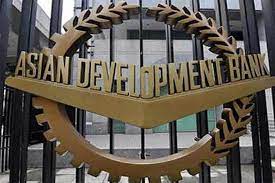
SATV 6 May, Kathmandu: The Asian Development Bank (ADB) has appointed ICIMOD to act as one of three technical implementing partners in a major initiative designed to transform climate and disaster risk reduction in the Hindu Kush Himalaya (HKH) region.
The Asian Development Bank’s Building Adaptation and Resilience in the Hindu Kush Himalayas (BARHKH) initiative was launched in December 2023. The initiative has a total funding of US$ 6.52 million for its first phase, out of which US$ 450,000 has been allocated to ICIMOD.
According to a press statement issued by ICIMOD on Thursday, the project aims to reduce human and economic risks associated with the increasing frequency and intensity of climate-induced mountain hazards in the region, such as floods, landslides, and glacial lake outburst floods (GLOFs).
Switzerland, through the Regional Climate Action Partnership in HKH, has contributed CHF 2 million (US$ 2.4M) to the BARHKH initiative. In addition, Switzerland is bringing in its decades-long expertise in climate change and disaster risk management through a range of Swiss institutions, including those from the private sector and academia. This collaboration aims to build on global knowledge and enhance regional capacity, said the statement.
The initiative also seeks to cut the costs of disaster risk reduction for individual governments, promote climate resilient investments, and strengthen community resilience by developing shared data, systems on multi-hazard risks and multi hazard early warning systems, and with improved access to training, knowledge and finance.
The initiative sets out to build permanent regional capacity in interventions that address a spectrum of hazards, from floods, debris flows, landslides, glacial lake outburst floods to permafrost thawing.
Interventions will range from identifying disaster hotspots, reducing exposure, by using multi-hazard risk assessment to inform climate resilient investments, to ramping up early warning for early action, building impact-resistant infrastructure, insurance solutions, and increasing the effectiveness of operations, maintenance and finance plans.
In its first phase, which runs till October 2028, BARHKH focuses on Nepal and Bhutan. Phase two will focus on operationalisation, and scaling the initiative to additional countries, and sectors in the Hindu Kush Himalayan region.
“Our warming world is unleashing devastating hazards in our mountains. Even advanced economies are being stretched, we must act now to scale proven solutions across the HKH, and we hugely applaud ADB for this initiative,” said Saswata Sanyal, Disaster Risk Reduction Lead at ICIMOD and Project Coordinator for BARHKH for ICIMOD.
“The escalating costs of disaster management and mitigation make it imperative for agencies and governments within and beyond our region to come together like never before, to ensure as many people and sectors as possible benefit from the best innovations and systems and techniques, at the lowest cost. We are delighted to be among the technical advisers whose insights will advance disaster management and lower risk in this region,” she said.
ICIMOD’s participation in this project was confirmed just days ahead of the opening of the Global Platform for Disaster Risk Reduction (GPDRR), the key fora for disaster risk experts to share knowledge, discuss development and trends. This year’s event, which closes tomorrow (6 June) is hosted by the Government of Switzerland.
“With the hazard pattern changing so significantly with temperature rise, disaster management in the HKH is not yet where it needs to be,” said Declan Magee, Principal Economist and Team Leader BARHKH for ADB. “Huge knowledge exists in this region, and beyond it. This is a first crucial step towards pooling that knowledge base and technical expertise, building the appropriate capacity and leveraging the right investment and planning guidance to save lives, and safeguard economic development,” he said.
ICIMOD is at GPDRR, selected among organisations globally to present on the Community-Based Flood Early Warning System, which is presently implemented across 15 sites including sites with transboundary rivers where the organisation specialises flood warning efforts.
Among other solutions, Early Warning Systems are expected to inform pre- and post-hazard efforts especially in a geography where the nature and intensity of hazards is becoming more and more erratic.



















